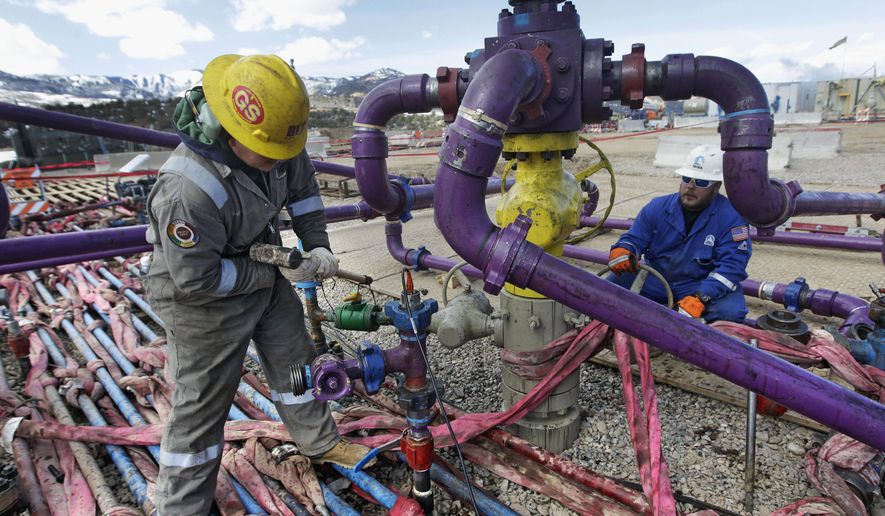A local recall election in suburban Colorado has erupted into a proxy war on hydraulic fracturing pitting environmental groups against the oil-and-gas industry.
Voters will decide Tuesday whether to oust Broomfield Mayor Pro Tem Greg Stokes after fracking opponents submitted 1,169 signatures to force a recall, even though he’s term-limited and his successor will be elected in November.
Mr. Stokes has called the recall “irrational.” Holding the vote will cost the city an estimated $45,000, prompting his supporters to decry the vote as a waste of money and blast the ongoing involvement of 350.org and Food & Water Watch on the local energy debate.
“Are we OK with a national keep-it-in-the-ground group like 350.org taking advantage of our recall process to make a political statement at the expense of Broomfield residents to the tune of $40-50,000?” asked the Front Range Energy Alliance’s Nick Kleibenstein at a June 28 council meeting.
Meanwhile, the Recall Stokes forces have insisted their campaign is locally driven and denounced the opposition of industry-funded groups such as Vital for Colorado.
Pro-recall ads that are obviously Photoshopped show Mr. Stokes wearing a work vest with the logo for “Vital for Colorado” next to a fracking operation situated next to a school. Another depicts a fracking well on a waterslide.
“That number, $45,000, seems irrelevant when you look at the loss of values to all the people living up here,” recall organizer Laurie Anderson told Denver’s CBS News affiliate. “And why now? Over the next four months, critical decisions may be made and we can’t take that chance.”
Fracking opponents submitted 1,169 valid signatures to recall Mr. Stokes after the Broomfield City Council’s vote Feb. 28 against enacting a hydraulic fracturing moratorium amid plans by Extraction Oil and Gas to add 139 wells.
Instead, the council formed a task force to study the issue and the company agreed to step back and work with city panel, later agreeing to move 40 proposed wells outside the city limits.
Even if approved, such a moratorium would have had trouble passing legal muster. Broomfield voters passed a five-year freeze on fracking in 2013, but three years later, the Colorado Supreme Court threw out similar bans in Longmont and Fort Collins, ruling that state laws on drilling preempted local ordinances.
Several city council members have come out in support of Mr. Stokes, arguing that he shouldn’t be recalled for taking a policy position, as did the Denver Post, which called on Broomfield voters to “send a clear message that extremism won’t rule the day in our politics.”
“What is happening in Broomfield is an abuse of recall power to make a political statement rather than recall’s intended purpose of removing hooligans from office,” said the July 6 op-ed. “The point is dramatically made by the fact Stokes, because he is term-limited, is already on his way out the door.”
Ms. Anderson, whose husband Jason Anderson is running to replace Mr. Stokes, said Broomfield voters can inspire those opposed to fracking operations in their towns.
The community of 62,000 is located about 13 miles from the University of Colorado Boulder.
“What happens here in Broomfield is going to affect other communities, and that is why I think there’s national politics into it,” she said. “If Broomfield can pave the way, others can follow.”
• Valerie Richardson can be reached at vrichardson@washingtontimes.com.




Please read our comment policy before commenting.